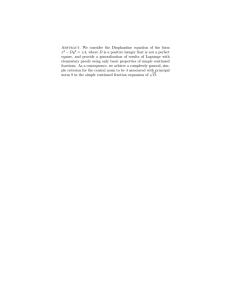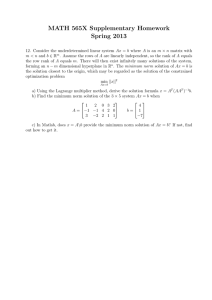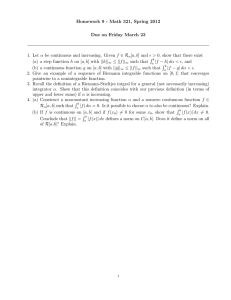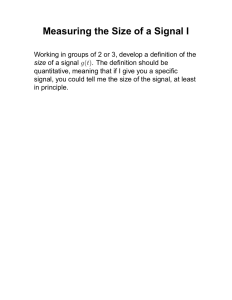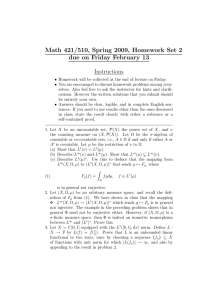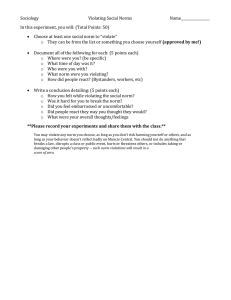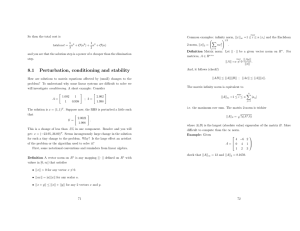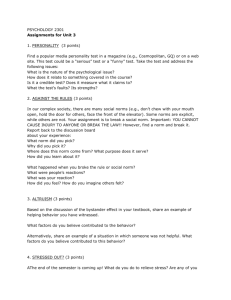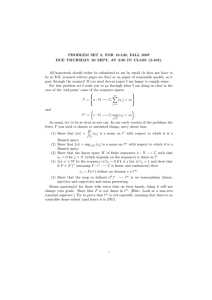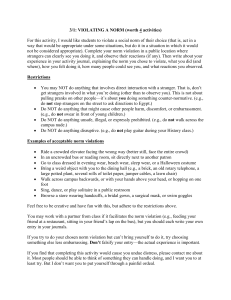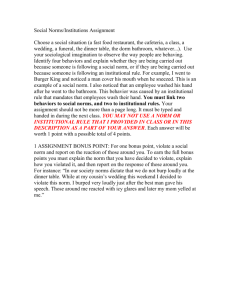Normal Family of Distributions
advertisement
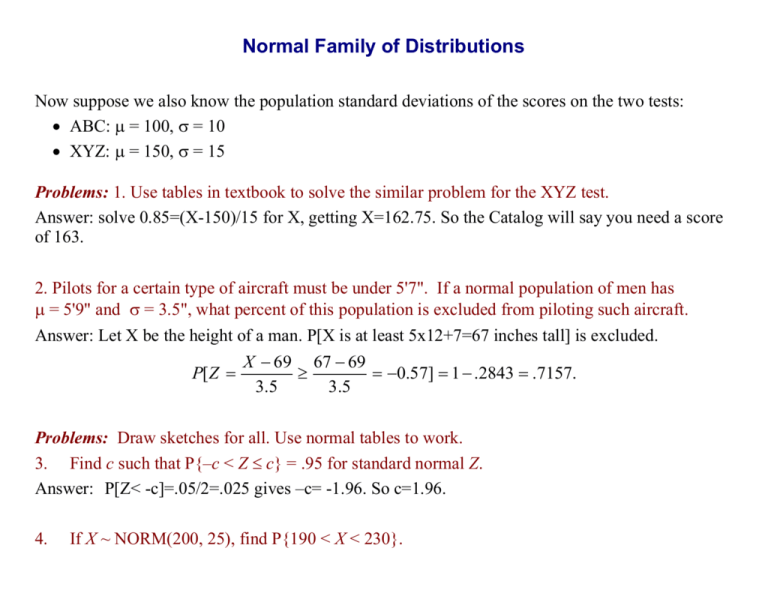
Normal Family of Distributions
Now suppose we also know the population standard deviations of the scores on the two tests:
ABC: = 100, = 10
XYZ: = 150, = 15
Problems: 1. Use tables in textbook to solve the similar problem for the XYZ test.
Answer: solve 0.85=(X-150)/15 for X, getting X=162.75. So the Catalog will say you need a score
of 163.
2. Pilots for a certain type of aircraft must be under 5'7". If a normal population of men has
= 5'9" and = 3.5", what percent of this population is excluded from piloting such aircraft.
Answer: Let X be the height of a man. P[X is at least 5x12+7=67 inches tall] is excluded.
P[ Z
X 69 67 69
0.57] 1 .2843 .7157.
3.5
3.5
Problems: Draw sketches for all. Use normal tables to work.
3. Find c such that P{–c < Z c} = .95 for standard normal Z.
Answer: P[Z< -c]=.05/2=.025 gives –c= -1.96. So c=1.96.
4.
If X ~ NORM(200, 25), find P{190 < X < 230}.
Answer:
190 200 X 200 230 200
P[
] P[.4 Z 1.2] P{Z 1.2] P[ Z .4] .8849 .3446 .5403.
25
25
25
5. Find d such that P{–d < Z d} = .99 for Z ~ NORM(0, 1).
Answer: P[Z<-d]=.005 gives –d=-2.60. So d=2.60.
6. If = 100 and P{95 < Y 105} = .6826, then find .
Answer: P[-5<Y-100<5]=P[|Z|<5/Hence P[Z<-5/
Table 1 gives -5/and so is 5.
7. If = 0.1, then find such that P{W > 16} = .90.
Answer: P[Z>(16-)/0.1]=0.90 and Table 1 gives Z 1.28.
Hence solving (16-)/0.1=-1.28 for gives 16.128.
0.90
8. If X ~ NORM(65, 3), then find P{X = 66} and P{65.5 < X 66.5}.
Answer: P[X=66]=0 and
P[(65.5 65) / 3 Z (66.5 65) / 3] P[.167 Z .5] P{Z .5] P[ Z .167] .6915 .5675 .124.
